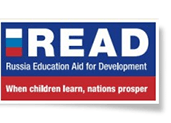RTI International published a new research “Shifting teachers’ practice in early mathematics classrooms in Ghana: a case study”. Teachers need high-quality teaching and learning materials for instruction in classrooms, including core materials like teacher guides and textbooks, and supplemental materials like decodable readers. However, in early grade mathematics, it often left up to the teacher to find and/or create supplemental materials needed for teaching basic mathematical concepts. The new research aims to uncover how the provision of materials in math classrooms changes the character of instruction. Case study conducted in Ghana where kindergarten teachers were provided with sequenced mathematics activities. A subset of teachers received low-cost manipulatives (e.g., bottle-cap counters and number cards), and other teachers were asked to create or gather their own materials needed for the activities. The extensive observations over the course of eight weeks was conducted to understand how instruction differed in the two types of classrooms. Two interesting patterns were found:1. Teachers who were given the manipulatives were much more likely than teachers not given the manipulatives to use the activities provided. 2. Even when teachers in both groups taught the same activities, the instruction was qualitatively different. In classrooms with manipulatives, all students in the classroom used them actively throughout the lesson; in classrooms where manipulatives were not provided, the teacher used the manipulatives to demonstrate concepts, and then 2-3 students were given the opportunity to use the manipulatives as the rest of the class observed. Based on these findings, RTI presents initial positive evidence that providing teachers with all the materials they need to implement lessons can dramatically improve implementation fidelity as well as improve the quality of instruction in early math.
The full paper is available here.







